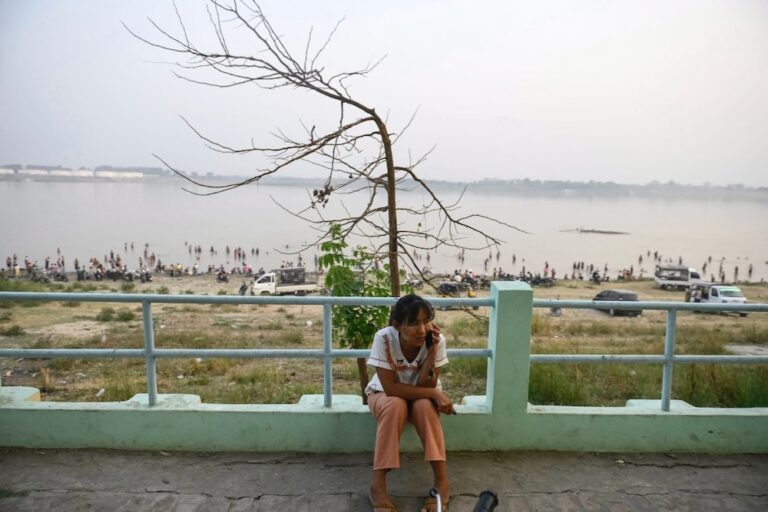(SEAPA/IFEX) – Just two days after releasing 200 political prisoners, including two journalists, Burma’s military junta jailed three opposition supporters for possessing and consuming “unauthorised” information. Mizzima.com, a Delhi-based, Burmese online news provider, reports that on 8 July 2005, the Shwebo district court in Northern Burma sentenced Dr. Win Aung, a township leader of the […]
(SEAPA/IFEX) – Just two days after releasing 200 political prisoners, including two journalists, Burma’s military junta jailed three opposition supporters for possessing and consuming “unauthorised” information.
Mizzima.com, a Delhi-based, Burmese online news provider, reports that on 8 July 2005, the Shwebo district court in Northern Burma sentenced Dr. Win Aung, a township leader of the National League for Democracy (NLD), and Khin Maung Win, an NLD supporter, to 10 years each in prison. Soe Win Aung, a high school teacher, received a three-year prison sentence.
Mizzima.com said the three were arrested on charges of possessing and watching video of opposition leader Aung San Suu Kyi’s tour of Northern Burma in 2003. They were also charged with reading unlicensed books: one about the late General Ne Win and another titled, “Who Killed Aung San?”, written by exiled Burmese authors.
Two other Burmese were arrested with the three convicted citizens, but were eventually released after standing as witnesses for the prosecution, Mizzima.com said.
On 6 July, the military junta released a total of 249 political prisoners including freelance journalist Sein Hla Oo and documentary film maker Aung Pwint (see IFEX alert of 7 July 2005). The move was cautiously welcomed by international human rights and media advocacy groups, which pressed for the release of all other political prisoners, including Aung San Suu Kyi. The well-known journalist Win Tin, 75, was not among those set free.
BACKGROUND:
The Television and Publication Acts in Burma are part and parcel of the censorship regime in the country. The laws make it compulsory for all television and video materials as well as publications to be approved by Burmese authorities before public release.
Among the types of information that are highly regulated or banned outright are those touching on natural disasters, the AIDS epidemic, human rights, Aung San Suu Kyi’s detention and her political movement, debates about government policies, poor local economic conditions, or any other news that the government might regard as unflattering.


